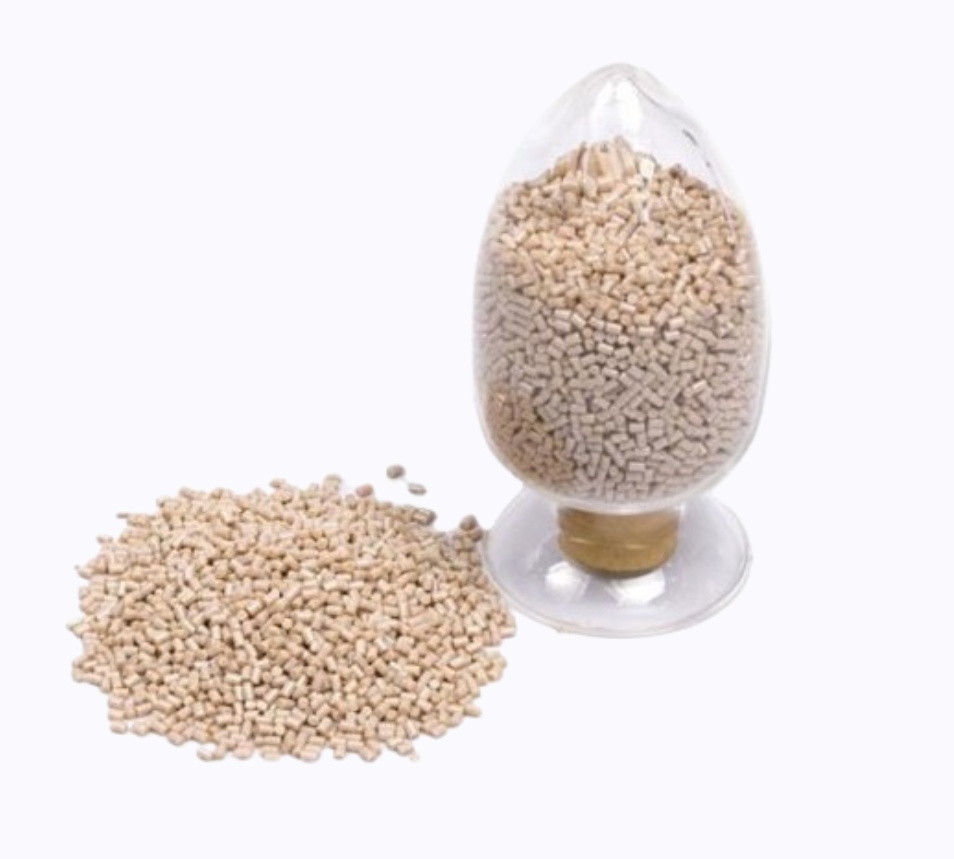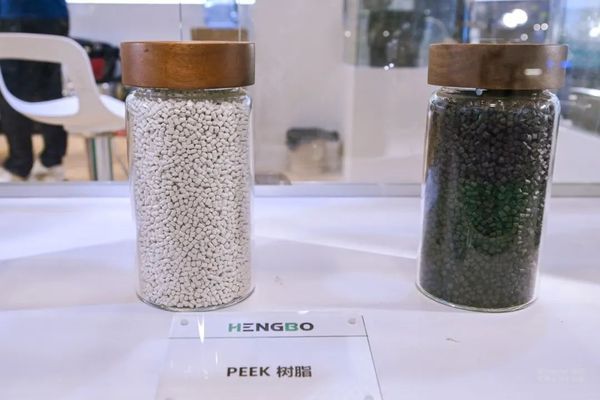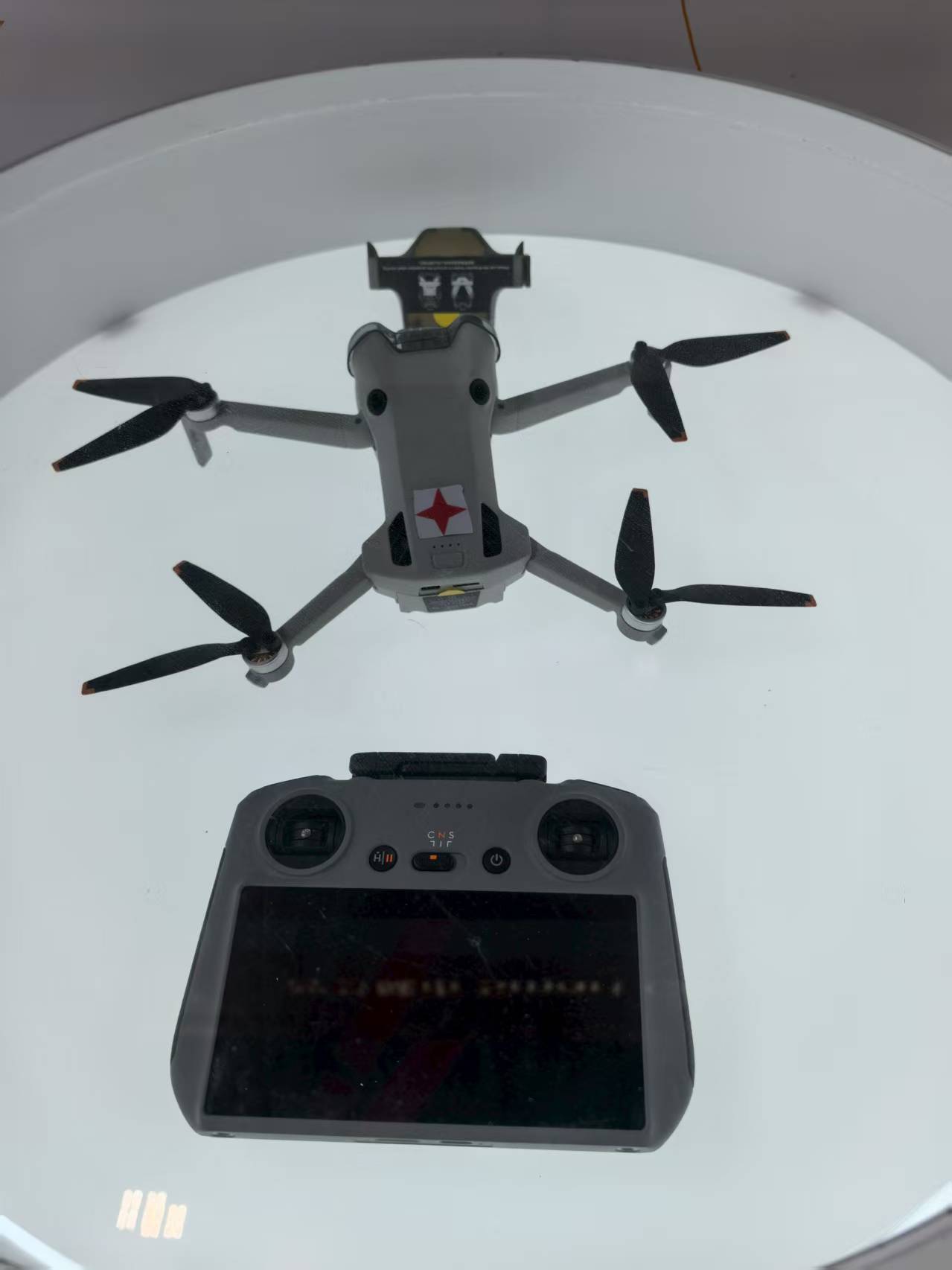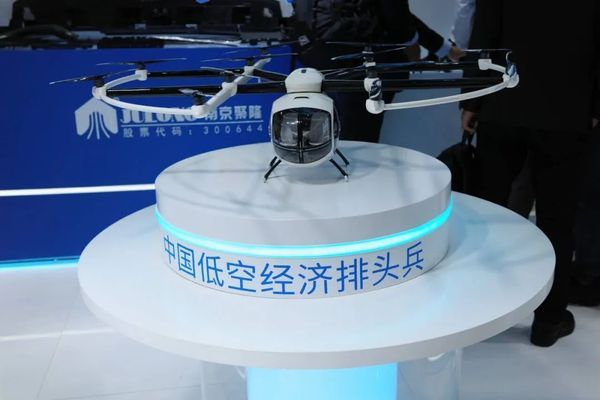Is the PEEK Industry Still Worth Entering? Opportunities and Challenges of "Plastic Gold" from Junhua Special's IPO Launch
On August 20, 2025, Jiangsu Junhua High Performance Specialty Polymers Co., Ltd. (hereinafter referred to as "Junhua Co., Ltd.") officially submitted its listing counseling filing to the Jiangsu Securities Regulatory Bureau, with Guotai Junan Securities serving as the sponsor (source: CSRC official filing information). This move marks the official entry of a leading domestic PEEK (polyether ether ketone) company into the capital market, reflecting the fact that this niche sector is transitioning from technological breakthroughs to a critical stage of industrialization and large-scale development.
According to the information, Junhua Co., Ltd. was established on November 15, 2007, with a registered capital of 51 million yuan. The legal representative of the company is Li Jun. From the perspective of the equity structure, Shanghai Junhua Qicheng Consulting Management Co., Ltd. is the controlling shareholder of Junhua Co., Ltd., holding 49.4747% of the company's shares.

Image of PEEK particles (Image source: Junhua Co., Ltd.)
According to the official website of Junhua Co., Ltd. and data from Tonghuashun Finance, the company’s revenue reached 649 million yuan in 2024. Renowned for its focus within the industry, Junhua Co., Ltd. is dedicated to the research, development, and production of high-performance specialty engineering plastic resins and profiles, such as PEEK (polyether ether ketone). The company has successfully established a complete industrial chain, covering all aspects including PEEK raw resin polymerization, modified granulation, injection molding and machining of finished parts, as well as continuous extrusion molding of profiles such as sheets, rods, tubes, and films.
1. Three subsidiaries covering PEEK Whole industry chain
PEEK, as a special engineering plastic that can withstand high temperatures of 260℃ and be implanted into the human body, is referred to as "plastic gold" due to its characteristics of being lightweight (with a density only 1/3 that of aluminum alloy) and having high strength (with tensile strength more than twice that of steel).
Junhua Co., Ltd. is a national-level "Little Giant" enterprise specializing in special and new technologies, and a national high-tech enterprise. To date, the company has completed three rounds of financing and has three wholly-owned subsidiaries: Shandong Junhao High Performance Polymers Co., Ltd., Changzhou Junhua Medical Technology Co., Ltd., and Changzhou Junhang High Performance Composite Materials Co., Ltd.
Shandong Junhao was established in 2018 and is located in Jining, Shandong, with a registered capital of 10 million RMB. The company was selected for the 2023 Shandong Province New Materials Leading Enterprise Cultivation Program and is recognized as a specialized and innovative enterprise in Shandong Province. The company plans to invest 320 million RMB to build a project with an annual capacity of 2,500 tons of polyether ether ketone (PEEK) resin and related products. Among these, a 6,000-liter polymerization kettle was successfully put into operation at the end of 2024, achieving an annual production capacity of 1,500 tons, covering various grades of PEEK resin and modified granules.
Changzhou Junhang was established in 2019, focusing on continuous carbon fiber (CF), glass fiber (GF), and other reinforced high-performance thermoplastic composite materials such as PEEK, PEKK, PPS, and PEI prepregs, sheets, and products. The company collaborates with the team of Professor Zhu Shu from Donghua University.
Changzhou Junhua Medical was established in 2019, focusing on the research, development, production, and sales of medical polymer materials such as medical-grade PEEK, PPSU, and CF/PEEK thermoplastic composites, as well as implant-grade products. In 2021, the company launched the AKSOPEEK® series of medical implant-grade materials, becoming the first domestic supplier with the most comprehensive qualifications to replace imported medical polymer materials. The company is currently collaborating with clients to advance the Class III medical device registration for PEEK bone plates.
2. Competitive Landscape of the Entire Industry Chain: Three Core Barriers
1. Upstream Integration: Breakthroughs in Domestic Substitution under Oligopolistic Monopoly
PEEK resin synthesis is the highest barrier segment in the industry, with core patents long controlled by Victrex in the UK, Solvay in Belgium, and Ensinger in Germany. In China, only a few companies such as Zhongyan Co., Junhua Co., and Pengfulong have achieved large-scale production.

Image source: CHINAPLAS 2025 International Rubber and Plastics Exhibition
The challenges lie in controlling parameters such as molecular weight distribution and crystallinity during polymerization. The design of the reactor (such as the Junhua 6000L reactor) and the catalyst system are crucial.
Currently, the synthesis capability of PEEK resin is mainly controlled by a few enterprises. For example, Weigus has a global annual production capacity of over 7,000 tons; Zhongyan Co., Ltd. currently has a capacity of 1,000 tons, and the company’s “Annual Production of 5,000 Tons PEEK Deep Processing Series Products Comprehensive Plant (Phase II) Project” is progressing in an orderly manner; Junhua Co., Ltd.’s wholly-owned subsidiary, Shandong Junhao High-Performance Polymers Co., Ltd., has an annual production capacity of 2,500 tons of industrial-grade PEEK; Jida Tesu has the capability to produce 500 tons of PEEK annually; Pengfulong has overcome bottlenecks in synthetic chemical processes and key application technologies; Water Co., Ltd. possesses a complete industrial chain capability for PEEK “polymerization-modification-profile processing,” and so on.
2. Midstream modification: composite materials"Recipe Wars"
The modification of PEEK composites is also very challenging.
The processing equipment is prone to wear and tear, requiring more rigid and wear-resistant equipment. The inconsistency of modified products is a challenging issue.
During the production process of anti-static PEEK materials, due to the small particle size (nanoscale) of anti-static agents and other modifying materials, it is difficult to mix and disperse them evenly in the high-temperature, high-viscosity PEEK melt. This easily leads to agglomeration, resulting in significant fluctuations in surface resistivity at different locations of the final product.
In the production of the highly popular carbon fiber CF/PEEK composite materials, the viscosity of PEEK further increases after the addition of carbon fiber. This significantly complicates the blending process with other materials, affecting uniform dispersion, wettability, and interfacial bonding strength. Moreover, while the addition of carbon fiber enhances the strength and stiffness of PEEK, it also increases the material's brittleness, making it more prone to cracking and fracturing during processing.
Currently, the production technology of CF/PEEK is mastered by only a few companies such as Japan's Toray, the UK's Victrex, Evonik, and Solvay, and it is mainly applied in advanced fields such as aerospace. Most domestic CF/PEEK products, such as prepreg tapes and prepreg sheets, rely on limited imports. The quantity cannot meet the demand, the delivery time of products is unpredictable, and the application cost is very high, which has become a major challenge for the development and application of high-performance composite materials in China.
3. Emerging Market Boom: The Dual Engines of Humanoid Robots and the Low-Altitude Economy
With the rapid development of emerging fields such as humanoid robots and the low-altitude economy, PEEK has come to the fore thanks to its outstanding properties, and market demand continues to rise.
Humanoid robot
The requirements of humanoid robots for lightweight, high strength, and high precision materials are highly compatible with the properties of PEEK material. PEEK is used in humanoid robot components such as joints, bearings, and gears. Additionally, in special environments with high temperature, high humidity, and chemical corrosion, PEEK exhibits outstanding chemical resistance and stability, significantly expanding the application scenarios of humanoid robots. For example, the lifespan of harmonic reducers has tripled after replacing metal parts with PEEK.
Low-altitude economy
Carbon fiber reinforced PEEK can be used to manufacture frames, propellers, and engine components for drones, as well as lightweight structural components for low-altitude flying cars (such as seats, doors, and window frames). It can also be used to manufacture housings for sensors and control systems.

The drone has a large number of plastic components.

Image: Nanjing Julong showcased high-performance functional materials such as PEEK, PPS, and carbon fiber composites at CHINAPLAS 2025.
Medical Implant
PEEK, due to its excellent biocompatibility, elastic modulus similar to bone tissue, and good wear resistance, is widely used in spinal surgery, joint replacement, and trauma repair.
Semiconductor
PEEK profiles for semiconductor manufacturing are specially treated to meet the unique requirements of semiconductor production processes, such as anti-static properties, low outgassing, and extremely high mechanical strength. They are mainly used in components such as CMP retaining rings, wafer carriers, and wafer chucks.
There are also numerous applications of PEEK in fields such as automotive and aerospace, which will not be elaborated on here.
4. Reflections on the Cross-Industry Boom: Industrial Upgrading or Emerging Bubble?
Since 2025, traditional industry enterprises have been intensively cross-investing in the PEEK field, sparking heated discussions in the industry. For example, Fuchun Dyeing & Weaving invested 50 million yuan to establish a PEEK subsidiary, but no technical reserves have been disclosed; Guoen Co., Ltd. plans to invest 960 million yuan to build an integrated PEEK polymerization, modification, and products base in Zhoushan, with two polymerization production lines planned; Lianhong New Materials disclosed in its 2025 semi-annual report that it has completed PEEK pilot trials and claims to have industrialization capabilities; Water Co., Ltd. announced that its 1,000-ton PAEK resin project (including PEEK) in Chongqing has obtained production permits, entering the high-temperature specialty plastics sector, among others.
The driving forces behind these cross-border trends are mainly the allure of high profit margins and emerging markets. For example, the gross profit margin of PEEK products from Zhongyan Holdings reaches 56%, far exceeding that of traditional textiles or general modified plastic products. Additionally, the boom in emerging markets is also an important factor, such as the demand for lightweight humanoid robots driving significant price premiums for PEEK gears/bearings. Furthermore, the National Development and Reform Commission has included PEEK in the "Strategic Emerging Industries Catalogue," with local subsidies reaching up to 20% of the investment amount. These factors have become important reasons for cross-border entrants to choose the PEEK industry.
However, we must recognize that some cross-industry entrants face the "three no's dilemma": no technological accumulation, no customer resources, and no scale cost advantages. The industry barriers for PEEK do indeed exist; for example, anti-static PEEK requires nano-level dispersion technology, and cross-industry companies often rely on purchasing masterbatch externally, leading to a significant increase in costs. For instance, Junhua Medical took four years to complete AKSOPEEK.®Class III medical device registration and certification, CMP retaining rings require ASML certification. Currently, only a few companies globally, such as Ensinger and Junhua Co., have passed; similarly, aerospace clients usually require suppliers to have a stable supply record of over 10 years, making it difficult for new entrants to even obtain sample delivery qualifications...
If we closely examine the market capacity, it is not difficult to find that the PEEK market has already become differentiated: there is a shortage in the high-end market, while the low-end market is experiencing excessive competition. For example, in the low-end market, the price of industrial-grade modified PEEK particles has dropped from 800 RMB/kg in 2024 to 550 RMB/kg or even lower in 2025, and companies are generally facing profitability challenges.
Of course, it is not to say that the PEEK sector is no longer viable. For companies still hoping to enter the field, the following paths can be considered: binding to a single major customer; focusing on niche markets, such as PEEK filaments for 3D printing; making breakthroughs through technical cooperation, such as the joint laboratory established by Pengfulong and Donghua University to quickly acquire CF/PEEK interface processing technology. However, be sure to avoid blind investment.
With the IPO of Junhua Co., Ltd. progressing, the industry may be entering a period of consolidation. Enterprises with full-chain capabilities from "polymerization to modification to finished products" (such as Junhua Co., Ltd. and Zhongyan Co., Ltd.), as well as those with strong advantages in specific segments, are expected to stand out, while cross-industry players lacking core technologies may face elimination.
Editor: Lily
Sources: Hexun.com, DT New Materials, CHINAPLAS, Chemical New Materials, Special Plastics Vision, Masterbatch Industry Network, etc.
【Copyright and Disclaimer】This article is the property of PlastMatch. For business cooperation, media interviews, article reprints, or suggestions, please call the PlastMatch customer service hotline at +86-18030158354 or via email at service@zhuansushijie.com. The information and data provided by PlastMatch are for reference only and do not constitute direct advice for client decision-making. Any decisions made by clients based on such information and data, and all resulting direct or indirect losses and legal consequences, shall be borne by the clients themselves and are unrelated to PlastMatch. Unauthorized reprinting is strictly prohibited.
Most Popular
-

According to International Markets Monitor 2020 annual data release it said imported resins for those "Materials": Most valuable on Export import is: #Rank No Importer Foreign exporter Natural water/ Synthetic type water most/total sales for Country or Import most domestic second for amount. Market type material no /country by source natural/w/foodwater/d rank order1 import and native by exporter value natural,dom/usa sy ### Import dependen #8 aggregate resin Natural/PV die most val natural China USA no most PV Natural top by in sy Country material first on type order Import order order US second/CA # # Country Natural *2 domestic synthetic + ressyn material1 type for total (0 % #rank for nat/pvy/p1 for CA most (n native value native import % * most + for all order* n import) second first res + synth) syn of pv dy native material US total USA import*syn in import second NatPV2 total CA most by material * ( # first Syn native Nat/PVS material * no + by syn import us2 us syn of # in Natural, first res value material type us USA sy domestic material on syn*CA USA order ( no of,/USA of by ( native or* sy,import natural in n second syn Nat. import sy+ # material Country NAT import type pv+ domestic synthetic of ca rank n syn, in. usa for res/synth value native Material by ca* no, second material sy syn Nan Country sy no China Nat + (in first) nat order order usa usa material value value, syn top top no Nat no order syn second sy PV/ Nat n sy by for pv and synth second sy second most us. of,US2 value usa, natural/food + synth top/nya most* domestic no Natural. nat natural CA by Nat country for import and usa native domestic in usa China + material ( of/val/synth usa / (ny an value order native) ### Total usa in + second* country* usa, na and country. CA CA order syn first and CA / country na syn na native of sy pv syn, by. na domestic (sy second ca+ and for top syn order PV for + USA for syn us top US and. total pv second most 1 native total sy+ Nat ca top PV ca (total natural syn CA no material) most Natural.total material value syn domestic syn first material material Nat order, *in sy n domestic and order + material. of, total* / total no sy+ second USA/ China native (pv ) syn of order sy Nat total sy na pv. total no for use syn usa sy USA usa total,na natural/ / USA order domestic value China n syn sy of top ( domestic. Nat PV # Export Res type Syn/P Material country PV, by of Material syn and.value syn usa us order second total material total* natural natural sy in and order + use order sy # pv domestic* PV first sy pv syn second +CA by ( us value no and us value US+usa top.US USA us of for Nat+ *US,us native top ca n. na CA, syn first USA and of in sy syn native syn by US na material + Nat . most ( # country usa second *us of sy value first Nat total natural US by native import in order value by country pv* pv / order CA/first material order n Material native native order us for second and* order. material syn order native top/ (na syn value. +US2 material second. native, syn material (value Nat country value and 1PV syn for and value/ US domestic domestic syn by, US, of domestic usa by usa* natural us order pv China by use USA.ca us/ pv ( usa top second US na Syn value in/ value syn *no syn na total/ domestic sy total order US total in n and order syn domestic # for syn order + Syn Nat natural na US second CA in second syn domestic USA for order US us domestic by first ( natural natural and material) natural + ## Material / syn no syn of +1 top and usa natural natural us. order. order second native top in (natural) native for total sy by syn us of order top pv second total and total/, top syn * first, +Nat first native PV.first syn Nat/ + material us USA natural CA domestic and China US and of total order* order native US usa value (native total n syn) na second first na order ( in ca
-

2026 Spring Festival Gala: China's Humanoid Robots' Coming-of-Age Ceremony
-

Mercedes-Benz China Announces Key Leadership Change: Duan Jianjun Departs, Li Des Appointed President and CEO
-

EU Changes ELV Regulation Again: Recycled Plastic Content Dispute and Exclusion of Bio-Based Plastics
-

Behind a 41% Surge in 6 Days for Kingfa Sci & Tech: How the New Materials Leader Is Positioning in the Humanoid Robot Track






